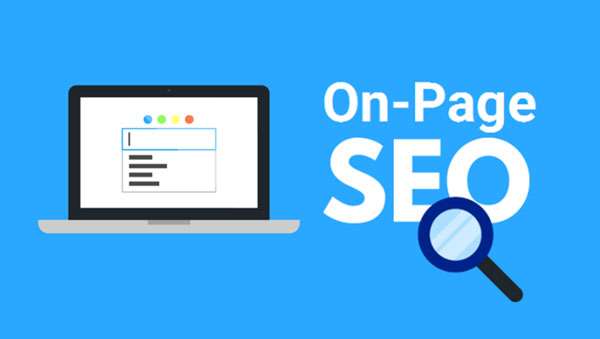5 On-Page SEO Factors For Every Website – 2022

When it comes to optimising your website for the search engines, on-page SEO is one of the most important areas to focus on (the other being off-page SEO).
While off-page SEO refers to everything that happens off the website, like the links pointing back to your site, on-page SEO covers everything else. This includes everything from how fast your site loads to the content on the web pages.
On-page SEO is very important. It really matters because it helps to tell the search engines what your site is about and whether it is worth visiting, affecting its visibility in the search engines.
But what are the most important on-page factors? Here are five that you should always focus on.

Top On Page SEO Factors to Consider in 2022 are:
- Keywords Research
- Title Tag
- Meta Description
- Optimised Images
- Quality of the Content
1. Keywords Research
Keywords have long played an important role in SEO, ever since the earliest days of Google. However, things have changed over the years. While once it was enough to stuff web content full of keywords, these days it’s more important to choose your keywords wisely and use them in the right places.
It all starts with keyword research. This is a large topic, and you may need some help from an SEO expert to carry out keyword research. Even better, make keyword research a regular practice because search trends change over time.
Find the keywords that you should be optimising for, then use them in your title tags, meta descriptions and headings as well as in the content. But make sure the content always reads naturally.
2. Title Tag
The title tag is one of the most important on-page factors to consider. When you search in Google or another search engine and are presented with a list of results, the title tag is the text that links back to the web page.
This is an HTML tag, and it goes in the head section of all the pages on your website. Because of its visibility in the search results pages, it should clearly state what the page is about and should also be compelling rather than a string of keywords.
It does not have a huge impact on rankings, but it’s important to use a title tag for every page. If they are missing or duplicated, it could have a negative impact so they should always be optimised.
Keep it fairly short, incorporate one major keyword for the page, preferably at the start, and use curiosity to encourage clicks.
3. Meta Description
The meta description is the text that appears below the title tag in the search results. The job of the meta description is to succinctly describe what the page is about.
If you don’t create one, the search engines will take text from the page and use this to form the description. But there’s no saying that this will be the optimal text.
Improving the meta descriptions won’t suddenly help each page to rank, but they are still an important on-page factor. They provide information in the search results pages and can be used to encourage people to click. If this helps to increase your click-through rate, this can only be a good thing.
Keep your meta descriptions short and make them compelling while also using the main keyword for the page.
4. Optimised Images
Most websites make use of images to make the page more visually appealing and improve the user experience. But are your images optimised?
Images should be quick to load. If they slow down the website, this can affect the overall optimisation of the site.
You should also use an alt tag for each image. Add a keyword to the alt tag to tell the search engines what it is about and keep it short and descriptive. Get into the habit of doing this for every image to ensure they are all optimised.
5. High-Quality Content
Content is the most important on-page SEO factor of all. All websites need content, but it needs to be content that provides valuable information and encourages people to stay for longer on the website.
The content should also be updated regularly so the search engines know that it is being refreshed. Sometimes this can be difficult, but a simple solution is to start publishing a regular blog.
This allows you to create valuable content on issues surrounding your business including tips, ideas and useful information. You then have useful content that you can share on social media to direct more traffic to your website.
Optimise Your Website for Search
These are five of the most important on-page SEO factors that you should optimise. A website that is optimised in these areas stands a much better chance of ranking in the search results. However, they are not enough on their own, and there are many other SEO factors to consider, including both on-page and off-page factors.
If you really want to optimise your site, start by carrying out an SEO audit. This will reveal the areas that need the most attention so you can set about making the changes that will help to improve the organic visibility of your website.

